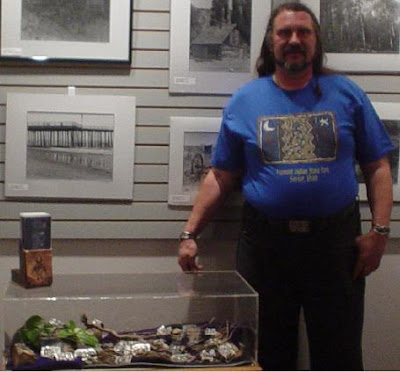
Anthropomorphs and other elements are shown in outline and as solid forms. Some have detailed facial features, headdresses, mask like faces, clothing, and elaborate body decorations. Others are relatively simple solid pecked and painted figures.
Fremont anthropomorphs are predominantly broad shouldered and roughly trapezoidal in shape; they may wear elaborate headdresses, jewelry, and clothing, and have abstract interior body decorations, such as dots, circles, spirals, aria lines. Some figures have long tapered bodies similar to those of the Barrier Canyon Style, while others have hourglass, rectangular, and bottle-shape bodies. Phallic males are shown. Anthropomorphs are frequently depicted in horizontal rows in a manner similar to that of Archaic and Anasazi rock art styles.

Heads shown in rock art are rectangular, helmet-shaped, and rounded and frequently sit directly on the shoulders. Side hair bobs similar to those seen on Anasazi Basketmaker figures. Facial features (usually eyes and mouth) are common on Fremont anthropomorphs, but are not always shown. Headdresses include fringed "sticks," horns, antlers, "ears," antennae like forms, rectangular "tablitas" (thin wooden boards with decoration), "feathers," and elevated cap like devices. The last are frequently described as reverse-bucket shaped heads. Distinctive headdresses of western Colorado and northeastern Utah are "fringed sticks". The "fringed sticks" are worn singly and as a pair with the fringe turned up as well as down. "Fringed sticks" are also shown as independent items and being held. The representations possibly signify or share symbolism of split and fringed plant fiber artifacts.
Legacy of Stone ©1990 Sally J. Cole p176-177
Maazoetsoh conforms to the Original Fremont Design




















